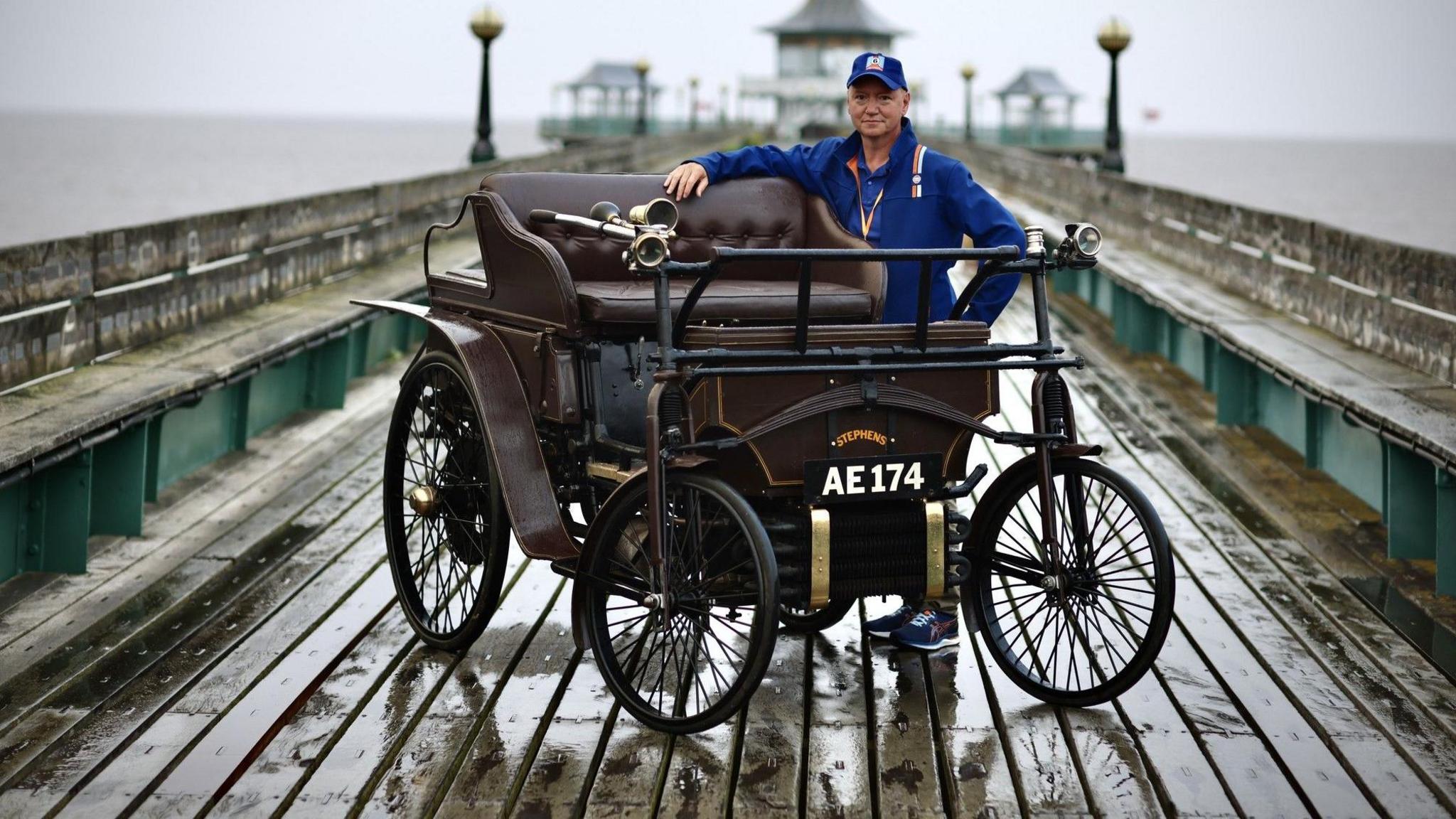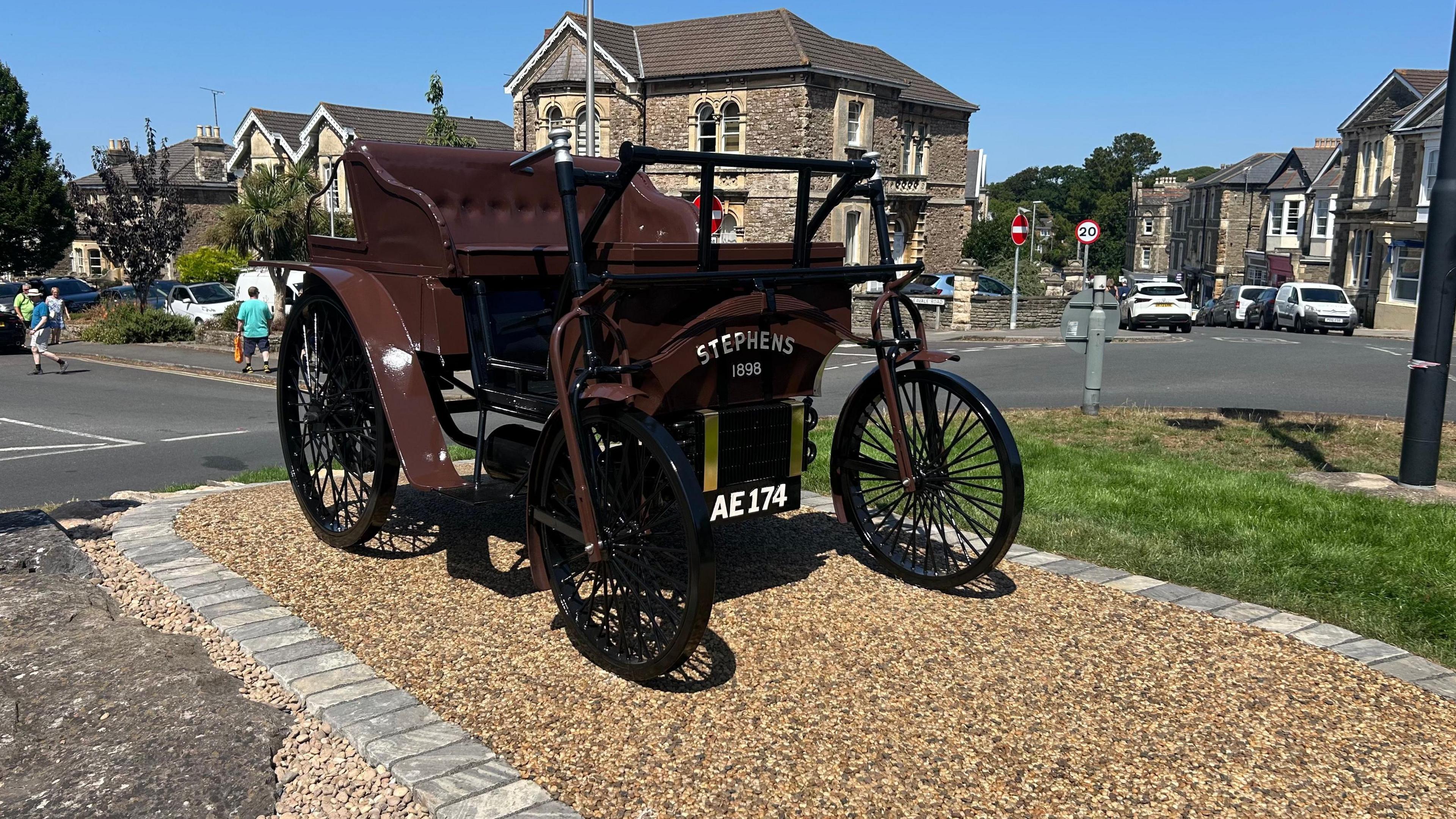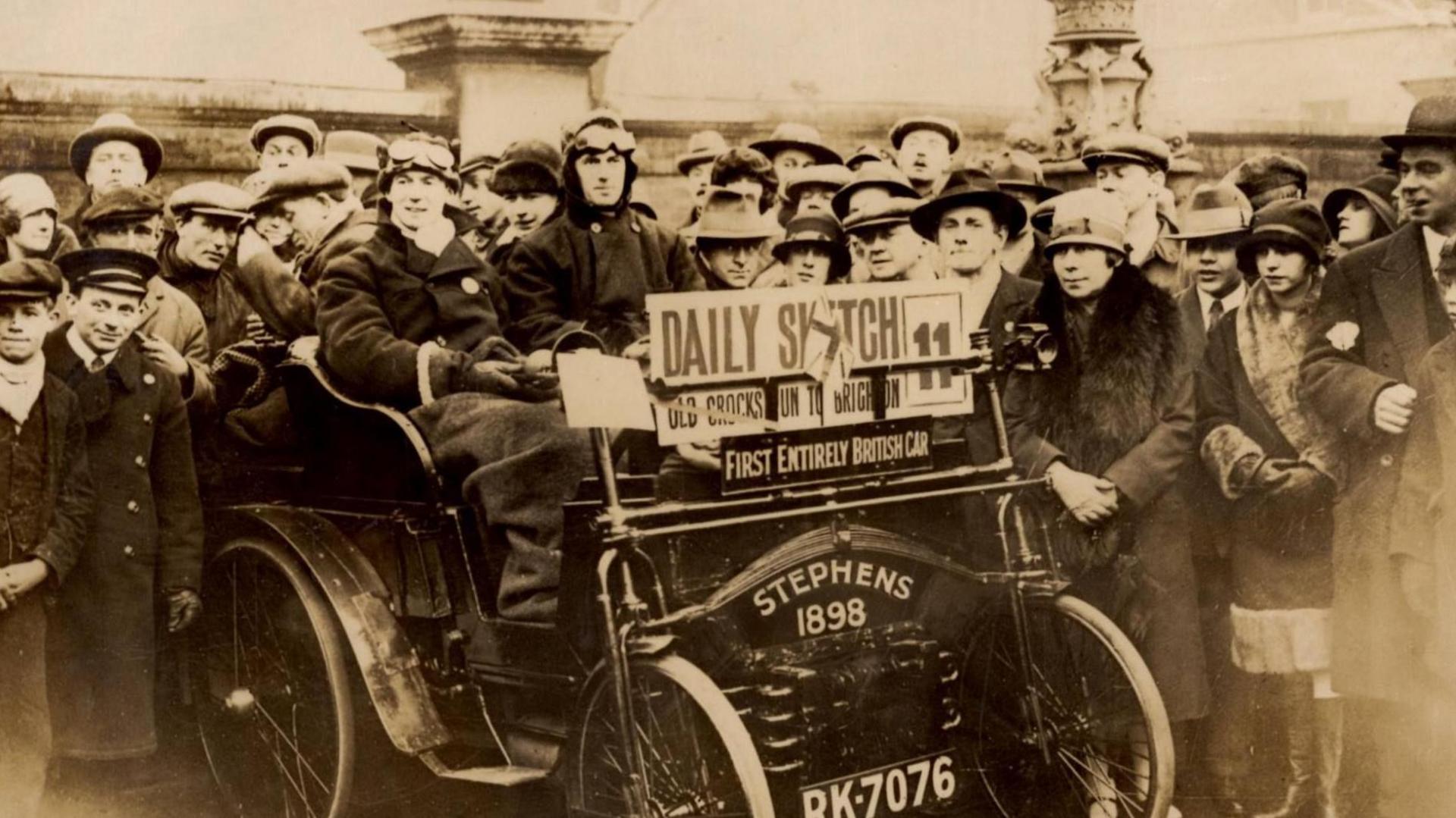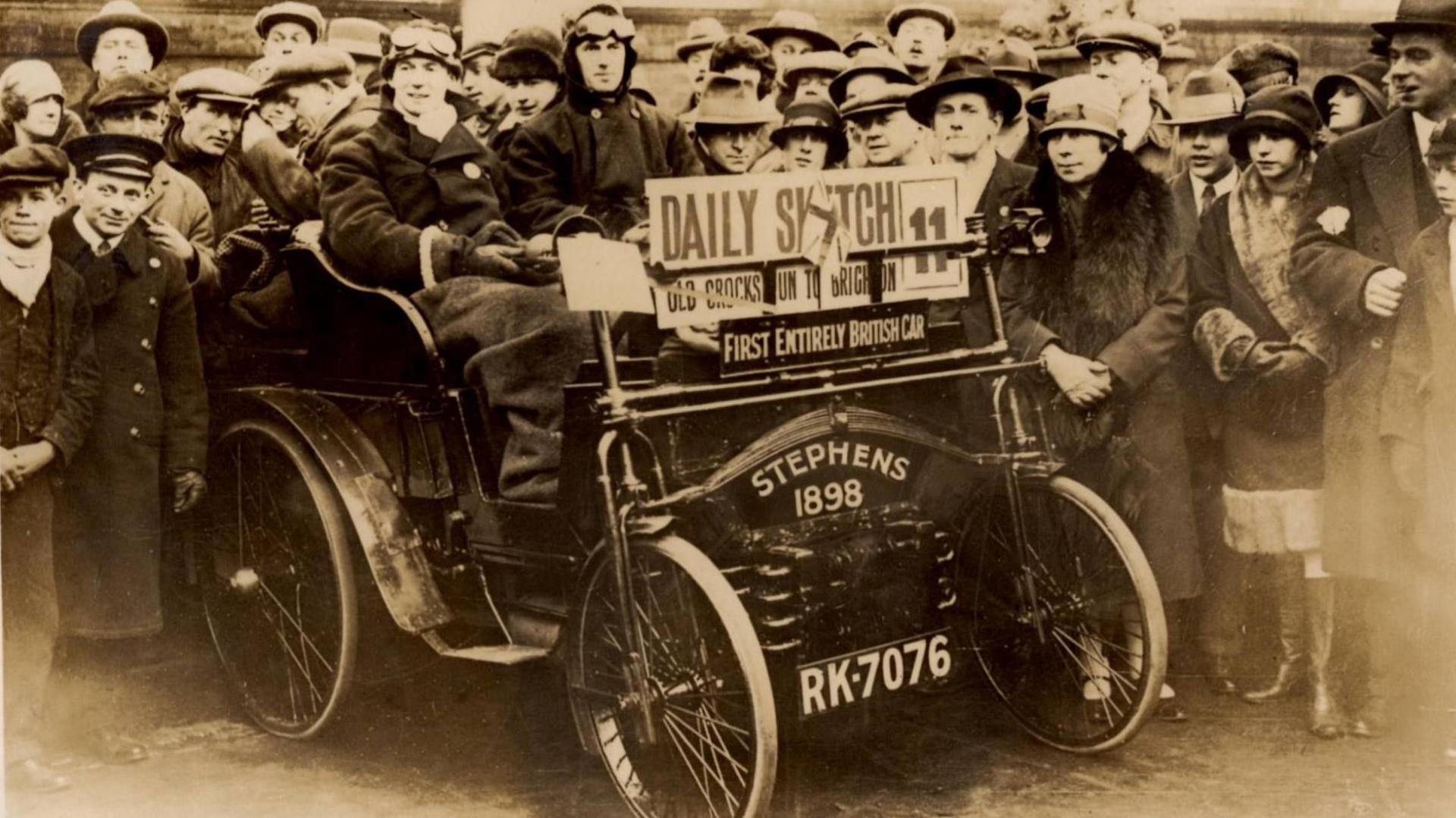Statue of first all-British motor car unveiled

Mark Reber raised the money to build a statue of this car, which was built in Clevedon in 1898
- Published
A statue of one of the first entirely British-designed and built motor cars has been unveiled.
The 1:1 replica of a car built by Richard Stephens in 1898 in Clevedon, now sits on Six Ways roundabout, a short distance from where the original was made.
Mark Reber, organiser of the Clevedon Cars and Coffee event, who commissioned the statue, said: "I am so happy to see the town's response, everyone is excited by this project.
"It's a reflection of how the car originally came together, it was several Clevedonians who made it happen, and it's gratifying to see that pattern repeat again today."
Richard Stephens began his car manufacturing business in Clevedon in 1897, taking inspiration from engineers he met in America, including Henry Ford and Ransom Olds, founder of the Oldsmobile car company.
Today, there are two surviving cars from 12 that were built and the company folded in 1916 after competition from other firms. One of the cars is still using its original tyres, installed 127 years ago.

The new statue sits on Six Ways Roundabout in Clevedon
The two have participated in the London to Brighton Veteran Car Run for several years.
Stephens' vehicles could reach 40mph (64km/h), and he invented his own suspension systems for his cars, as well as manufacturing early taxis and buses.
His granddaughter Georgina Westlake, who unveiled the statue, said it looked "amazing".
"Richard Stephens would be proud and so would my father," she said.

Stephens' cars could reach 40mph and only two of the 12 made have survived
The car statue was funded from private donations.
"Richard Stephens was a big believer in using cars for public transportation, creating them with local people using locally-sourced materials," Mr Reber said.
"Then he built them for mass transit, and his final car carried 10 people.
"Here we are in 2025 and we realise how many things he got right.
"He is the road not taken, and he addressed things in his design and business model we only appreciate now."
Mr Reber next plans to commission a mural of Richard Stephens for the building which formerly housed his workshop.
Get in touch
Tell us which stories we should cover in Somerset
Follow BBC Somerset on Facebook, external and X, external. Send your story ideas to us on email or via WhatsApp on 0800 313 4630.
Related topics
- Published12 August 2024
